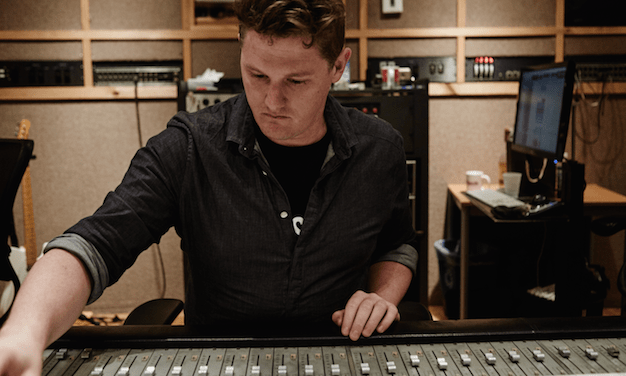Songwriting To A Brief: The good, the bad and the ugly

My father recently told me that as a six-year-old, I would tell him that I wanted to move to New York and make music. Now, nearly 30 years later, after having lived in a few continents, I’m sitting in my Midtown, New York, recording studio writing about doing just that.
I’m saying this, because, there are moments when it’s easy to think, “What am I doing here?” because, even though this is literally the dream I had long ago, a lot of it isn’t what I expected it to be.
I’ve been incredibly fortunate to work around the world, with some of the greatest producers and songwriters of modern times. To watch them work, to learn from them, to work with them, and also to be forging my own career and path into the unknown. Perhaps the most unexpected and also the most obvious part of my career is the concept of ‘writing to a brief’.
Stream Sigrid’s LP Sucker Punch below
worked on by Stephen Bartlett
What is writing to a brief?
In its most simple form, it’s writing a song within the contextual bounds that someone else imposes on you. This could be the song “meaning” or “emotion” or it could be the style of a song “Upbeat or Ballad”. Or it could be that you’re given music and asked to write lyrics, or vice versa.
The someone could be a manager, a label, an artist, or an advertising company. Sometimes it could be self-imposed.
There have been times when I’m producing a record for an artist or a band, and I take a step back and realise that the album doesn’t flow without something “uplifting” or something that gives reflective space, or whatever the missing ingredient is. Even though it’s self-imposed, I would now consider that “writing to a brief”.
The Good
I spent a few years in my career making records straight to tape. No computer at all, record to tape, mix to tape, pressed to vinyl. It was a great period for me creatively, and taught me an incredible amount. But perhaps the biggest take-away from it, was just how much I felt my creativity increase as I decreased my options.
With a computer, anything is possible, and anything is effortless. You rarely find yourself questioning how to do something. But when you’re trying to track a whole album on 8 channels of a Studer A80, there are a lot more opportunities to be creative.
I feel that sometimes writing to a brief can be the same. By imposing some limits, it forces you to question what you can do. It causes you to rely on some elements of knowledge and skill more, and then explore them a little further.
Another thing that I really like about writing to a brief, is sometimes it’s hard to know where to start, or what to say, being told what to say, or what emotion to give, can sometimes make the first steps just that much easier.

Stephen Bartlett
The Bad
Recently, I was writing to a brief for a European DJ. The deadline was short. I ended up locked, largely alone in a room for two very long days, writing and re-writing a melody and lyrics to be uplifting and motivational.
It was a struggle, I had musical ideas that wouldn’t flow within the limits I had, and time was counting down. I tracked a version and sent it off to just meet the deadline. My experience had been the complete opposite of the song that I was writing, and it wasn’t selected.
The bad part of writing to a brief, is that you’re almost never the only person doing it. Usually there are multiple people or teams submitting for the same spot, and you’re only given a vague indication of what is being judged.
You can put all the work in the world in, write a great song, and get nothing for it, but a, “thank you, but no thanks.” It’s the dark and harsh reality, and it’s not personal, it’s just how the game is played.
The Ugly
I (apparently) wrote my first song at seven. I recorded, with my guitar teacher, at the first time when I was 13, and had my first EP that I was proud of when I was around 19.
Music was pure, and everything was personal. The idea of writing to someone else’s imposed boundaries sounded contemptuous, and disgusting, the epitome of selling-out and “ugly”.
However, when I think through my career, most of which has been producing or engineering, I gave myself fully in each project to realise the dream of someone else.
When I mix, I try to use my skills to highlight the emotion, and the story of the song. I don’t think so much about how I feel, as I think about what the songwriter is communicating, what they are saying and how I can support that message.
While a younger me thought writing to a brief was the ugly head of a music industry gone wrong, I now see it as a chance to use my skills within a team, to contribute and create something great.
Sometimes it’s just not about you. You still get the chance to say no to any brief you like, so you can still maintain all the integrity you wish to.
John Lennon said, “Art is knowing what mistakes to keep.”
If you had asked me 15 years ago if I would write to a brief, I would have said there was little to no chance, but the truth is, it’s become a real joy for me. I’ve learned that it’s far from what I expected it to be like. I may have fallen into it, but it’s also exactly what I have always done as a producer or engineer, I’m just applying that same attitude to writing, which after all, was my first love with music.
This article originally appeared on The Industry Observer, which is now part of The Music Network.






























